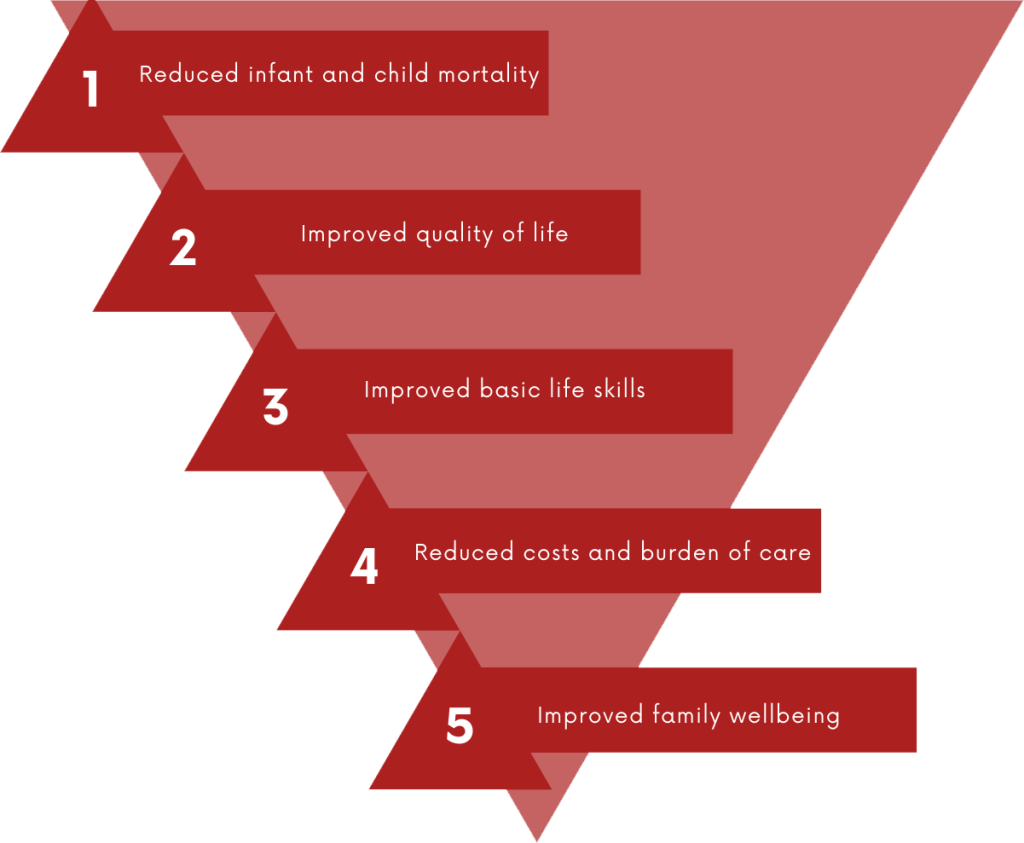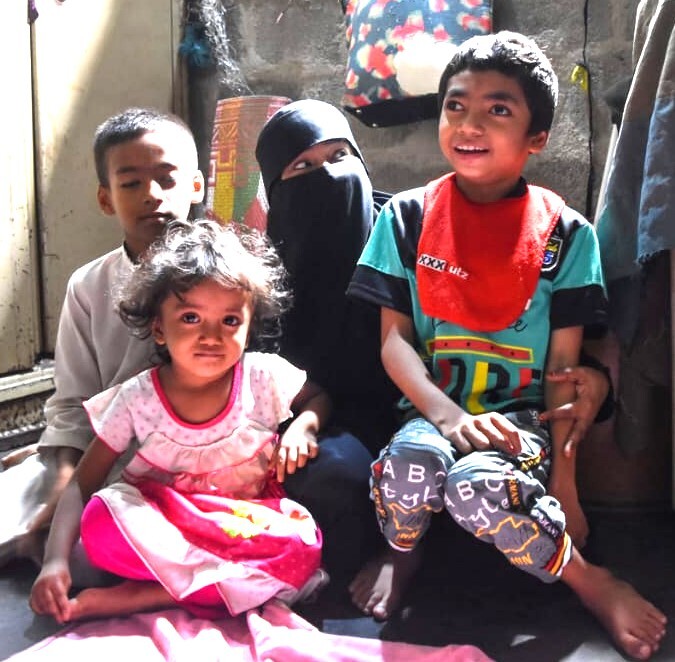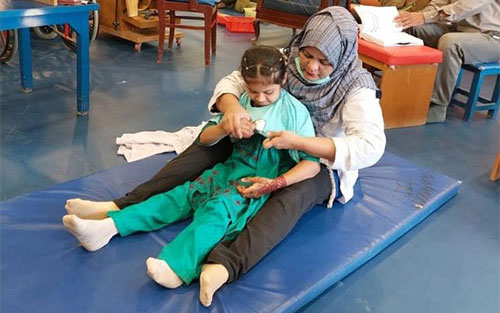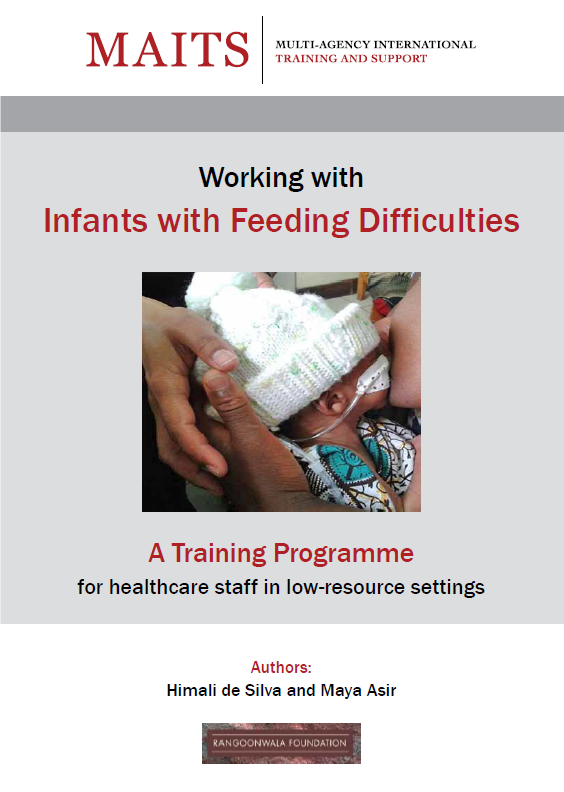The Need

1 IN 6
WHO March 2023- An estimated 1.3 billion people experience significant disability.
1 in 10 children worldwide has a disability, the majority of whom live in developing countries which lack essential healthcare services.
Caregivers should be supported, and community-based support, services and systems should be strengthened to prevent the separation of children from their families, to end Institutionalisation, to strengthen family-based alternative care and to promote the rights of children with disabilities to grow up in safe and nurturing family environments.
(UNICEF, 2022)
THE OUTCOMES
We do this by strengthening the skills of the local health and education workforce, caregivers and families in how to support babies and children with disabilities to survive and thrive.
MAITS is placing increasing emphasis on training of the trainer programmes which allows the building of skills and capacity within communities so that they can create change from within, supporting the local dissemination of much needed expertise.

Creating an Impact
Improved health & Wellbeing
Our Training Programme for non- specialists working with children enables them to identify developmental disabilities and breaks down stigmas surrounding disability within the community.
Access to trained healthcare professionals
Our training of the trainer programme continues to train health professionals and caregivers on latest techniques and skills available to support the childlren with disabilities.
Access to
quality education
MAITS partners with inclusive schools in low resource countries to co-create curriculum and educational materials for children with disabilities. We train teachers and support staff on understanding and working with children with developmental disabilities.
Priority SDGs

In order to run sustainable international development programme, a community – led approach is of utmost importance. In 2017, MAITS introduced its very first training of the trainer programme in Pakistan to create a pool of skills within the community by training local therapists using MAITS resources to further empower the middle to low level caregivers in an effort to reach the masses living below the line of poverty. MAITS continues to create these pools in various regions across the globe with a commitment to disseminate their skills and knowledge to reach the grassroot level.
Sustainable Approach
Our Model
Our approach works because building capacity within local communities in areas of identified need, helps to create sustainable change from within the community.
Our qualified trainers from around the world work closely with local partners within each country to identify areas of need, people to train, ways to overcome cultural and linguistic barriers, and to ensure that training becomes embedded within local networks.

Community Health Worker Empowerment Programme
Our CHW training targets hard-to-reach families with limited access to specialist therapists and therapy centres and who rely on the skill and dedication of community workers to enhance the lives of disabled children with disabilities and their families and the communities.
This 3-level accredited programme provides targeted home support to promote children’s development, health and well-being and timely specialist referrals to be made where possible, using MAITS expertly designed training.

Success Story
“After receiving MAITS training, I learnt a lot about the seating and positioning of children with Cerebral Palsy. The child I work with is now comfortable to sit which means she can carry out activities that weren’t possible before. “
Farah Naz, Community Health Worker – Pakistan
Success Story
“After receiving MAITS training, I learnt a lot about the seating and positioning of children with Cerebral Palsy. The child I work with is now comfortable to sit which means she can carry out activities that weren’t possible before. “
Farah Naz, Community Health Worker – Pakistan
Appropriate Paper-based Technology
Since 2016 we have successfully delivered Appropriate Paper-based Technology (APT) courses with our local partners in Sri Lanka, India, Bangladesh, Nepal, Kenya and Uganda. Equipment made out of APT (reinforced cardboard, using flour glue and varnish) can improve children’s health and independence, reducing the care and financial burden on families.
A cardboard seat can make the difference between life and death for a child with cerebral palsy. Using the same technique, other items can be made, including children’s toys and furniture, which are helpful for the child but can also be made as items to sell, producing an income for the family.
Enabling local self-sufficiency is key to our work. Materials used are locally-sourced, at low cost/free of charge, and are fully recyclable, creating a low-tech, low-cost way of making essential items that support the development, health and well-being of children with disabilities and providing a means of income generation for parents.

Working with Infants with Feeding Difficulties
This training package was developed to address a global gap in the training of healthcare staff working with infants with feeding difficulties in low resource settings.
Pilots of the programme in Malawi, Uganda, Rwanda and Sri Lanka showed very high levels of success in achieving exclusive breastfeeding using our techniques.
In Rwanda, breastfeeding rates of babies with feeding difficulties doubled in their first day of birth.
We know that the simple techniques taught through our programme can make the difference between life and death.
